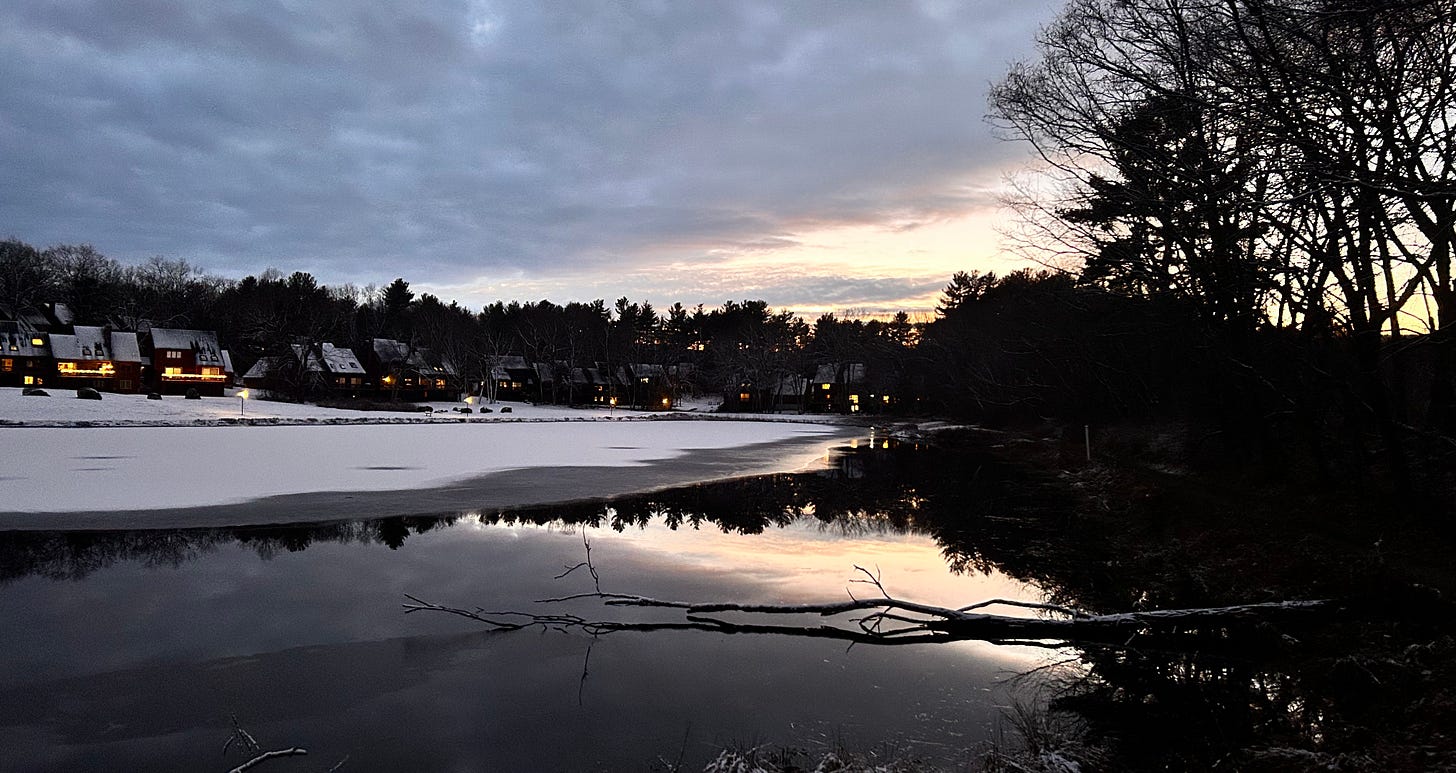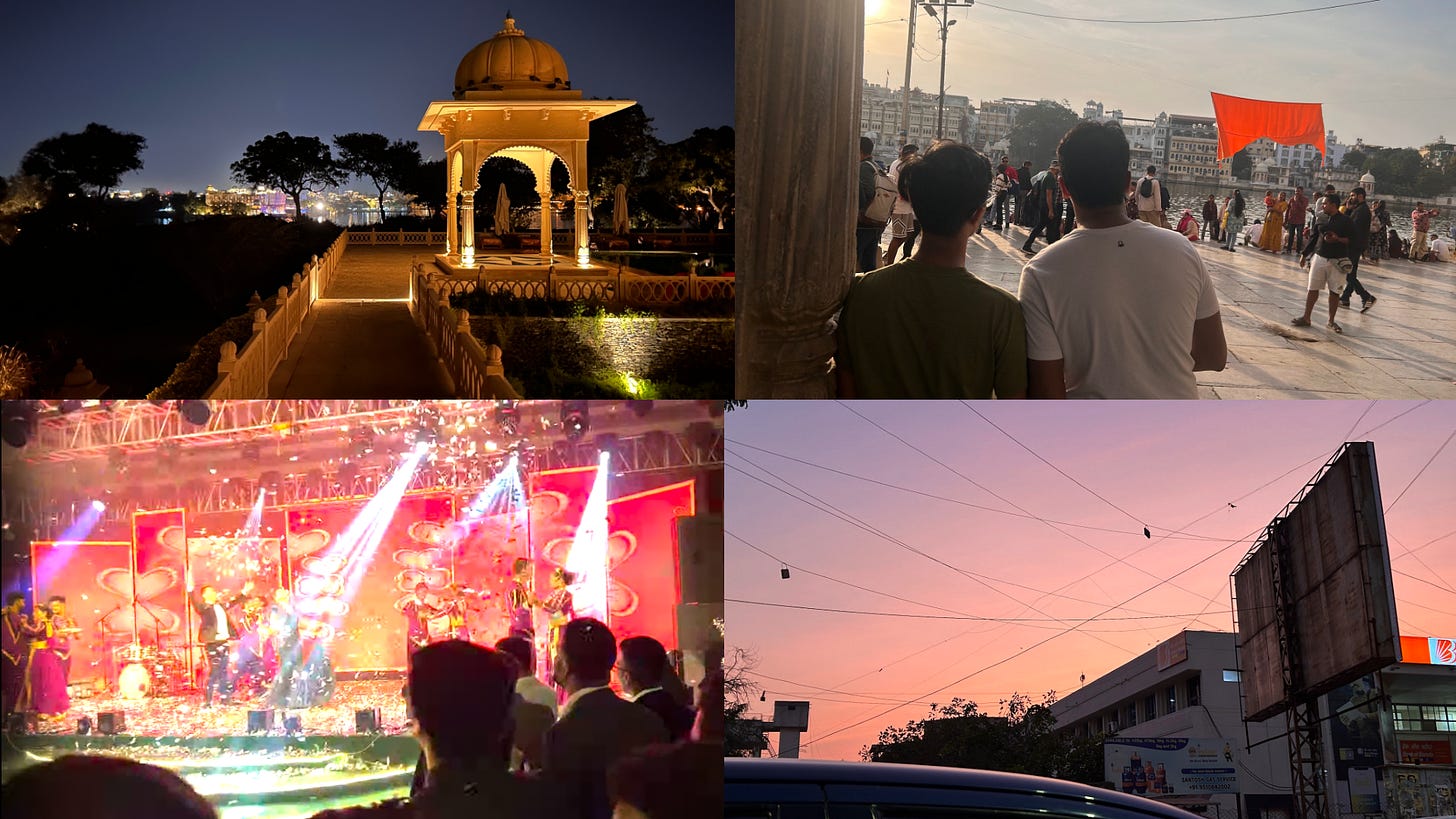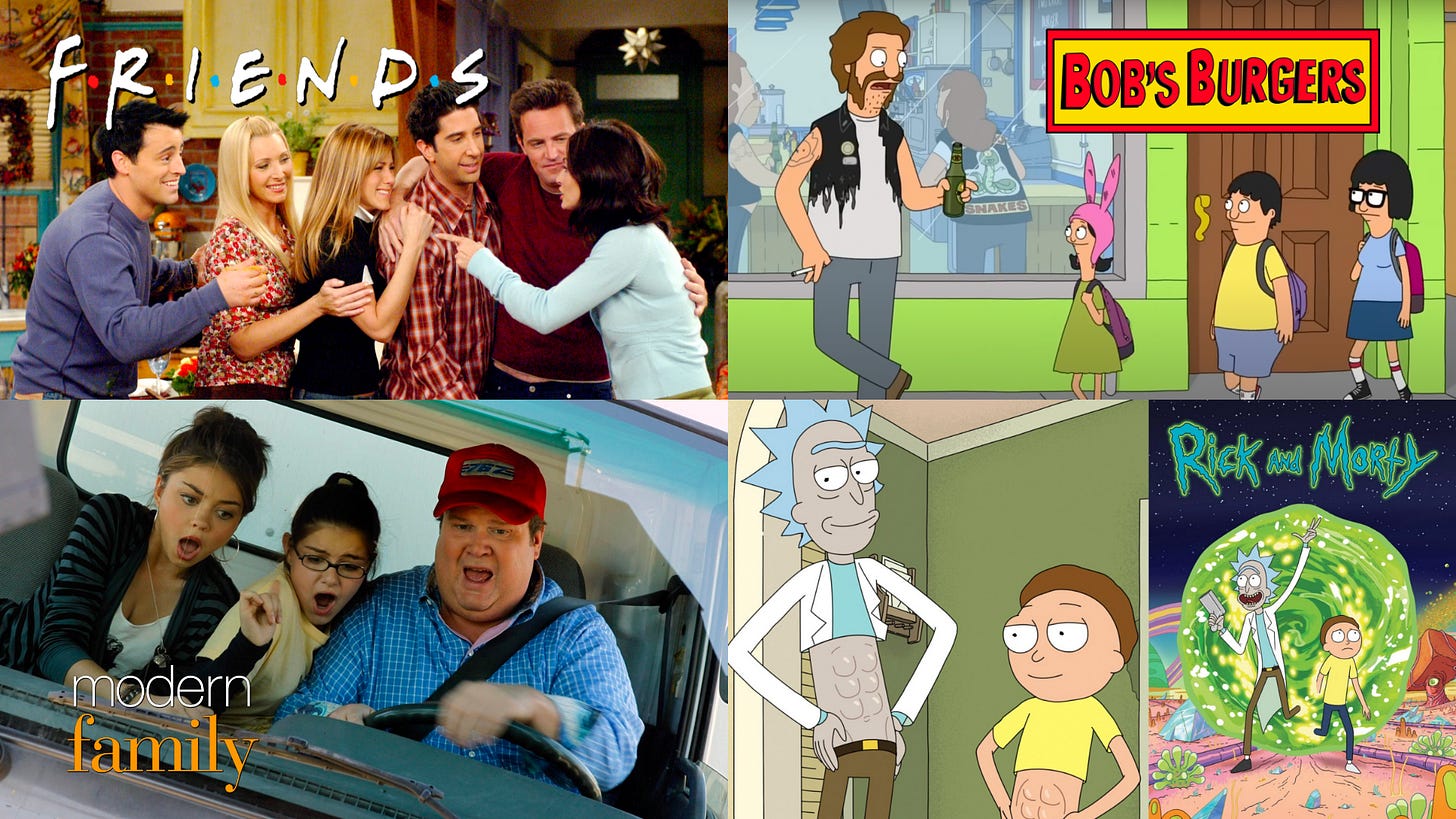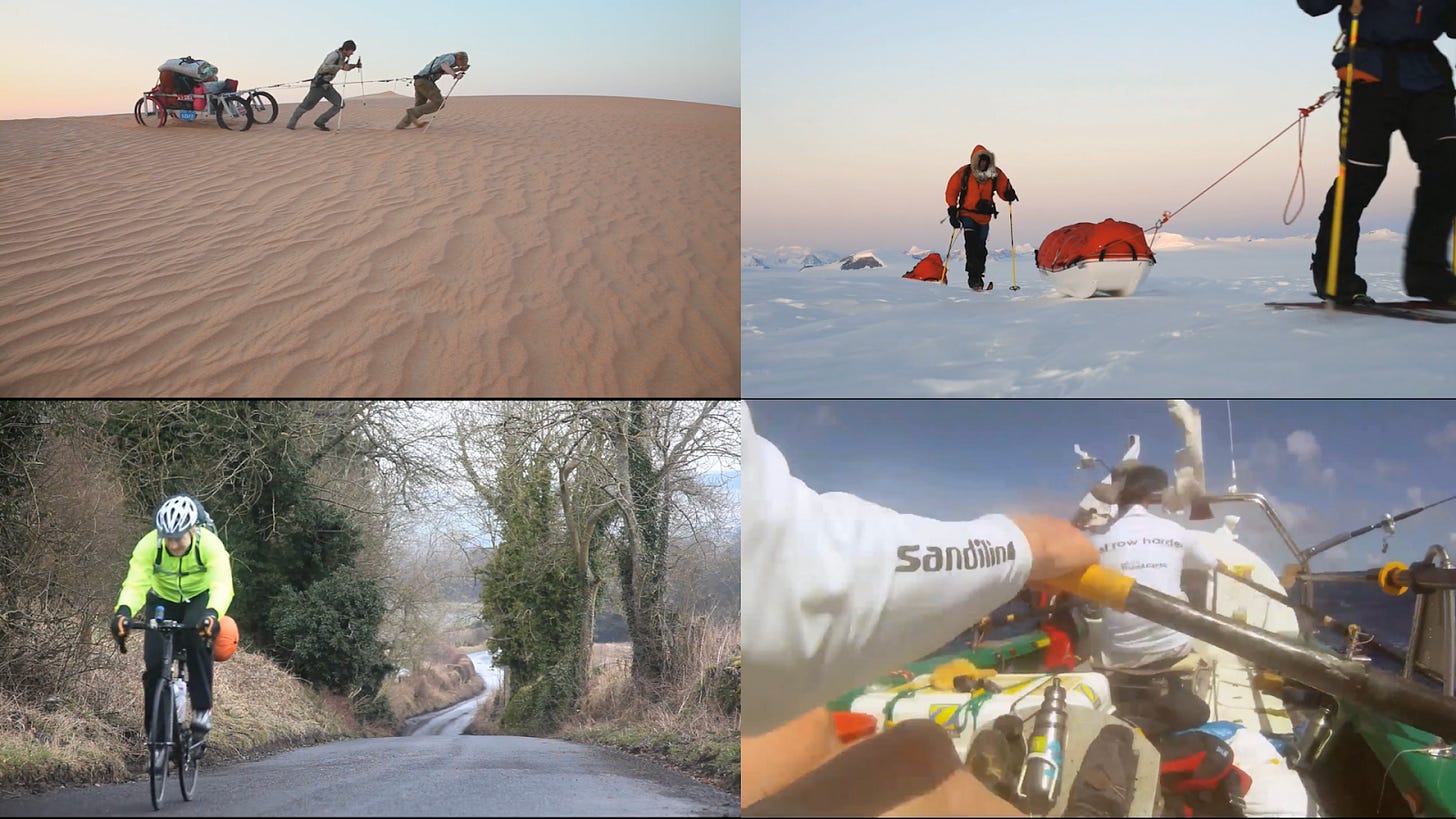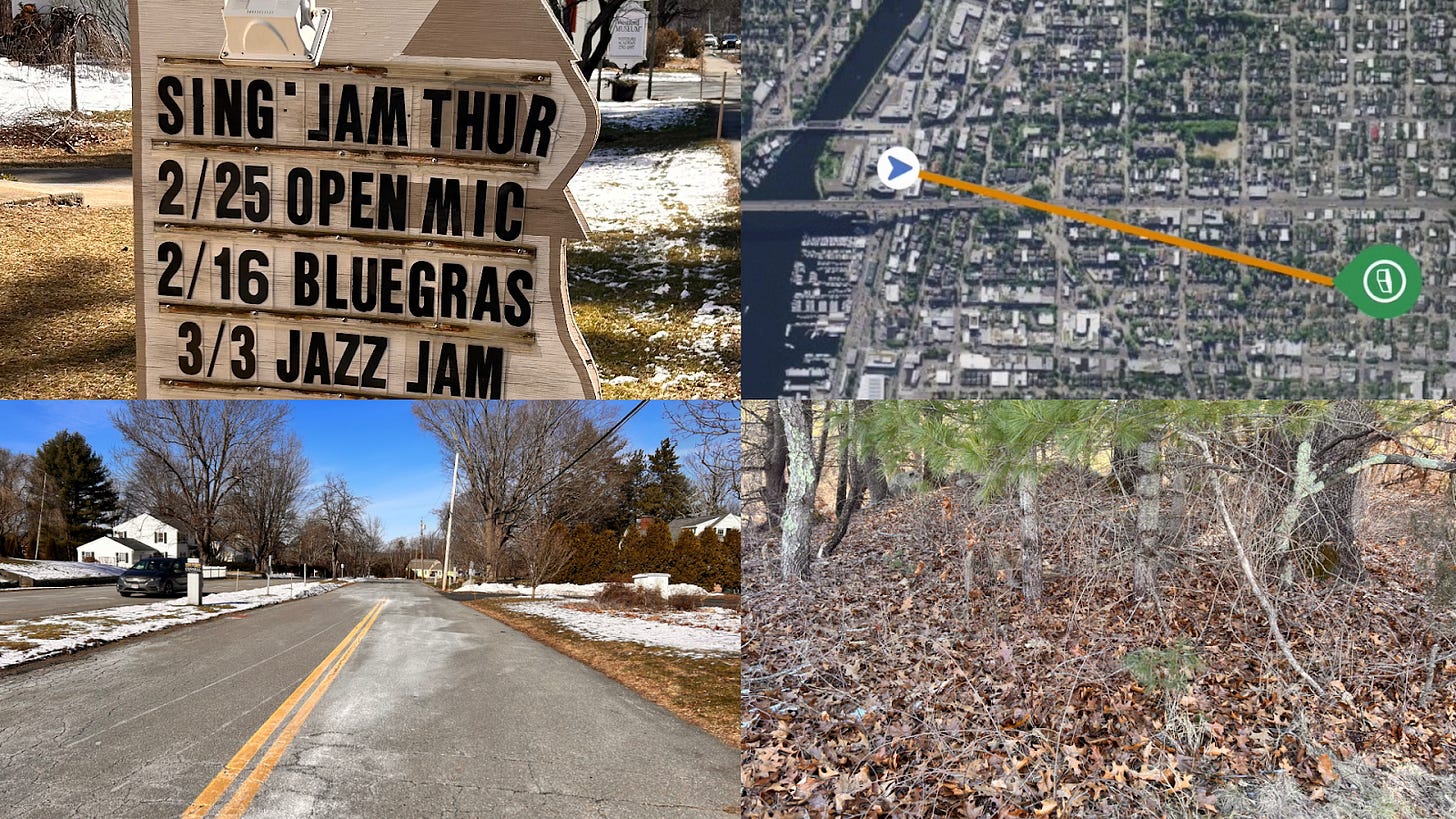Microadventures & the Philosophy of Sitcoms
Finding adventure at home and rethinking nuclear families
February 21st, 2023: I just got back from my trip to India two weeks ago and now I’m back home in the suburbs of Boston. Here in Boston, it’s nice, peaceful, and uneventful. I’ve settled back into a routine of morning walks, work, reading, TV, and sleep. In India I had a hectic wedding schedule where I would go to the morning ceremonies with my family and then stay up after the wedding events with my cousins in order to make the most of our time together. My trip to India was the most exhausting experience of my life, and yet I miss it dearly.
Going to India this year didn’t feel like a trip, it felt like getting knocked into an alternate reality. Even though all of the family I had come to visit was so far away and I only saw them once a year, they really made it feel like home. They would make jokes about how I’ve changed from how I used to be when I visited as a child, they were actively curious about what was going on in my life, and I even got some older sibling advice from my older cousins, which was a nice breath of fresh air given how used to the eldest sibling role I am within our immediate family. Beyond how close I felt to them, it was nice to see how close they were to each other. They all lived near each other and were actively involved in each other’s lives. Everyone understood each other's situations and was doing what they could, sometimes even behind the scenes, to help each other out.
In Hindi, the language used to address family members is very different from English. As opposed to just cousins, in-laws, and uncles, in Hindi every relationship gets its own word depending on whether it’s from your Mom’s side or Dad’s side and who is older and who is younger. It can get confusing, but the relationships, expectations, and nuances of each role are different and in this trip I got to fully experience each one. I got closer to understanding what it would really feel like to live there with these new roles and it was pretty great.
After all the festivities were over, it took about a day for me and my family to get back to the States. Being back made me feel empty, all the closeness and chaos I was getting used to in India had just vanished, like waking abruptly from a vivid dream. I started working again and life went back to normal. But it wasn’t a normal I was used to, it was an older normal. Since, after coming back I had gone from part time to full time in my AI governance work and my parents worked a 9 to 5, those naturally became my working hours too. I felt, in a sense, what it would actually be like to live and work in my town as an adult, and it was a surreal experience.
I enjoy the work, but in a way, I feel like I was leaving behind my journey on, who I was during that journey, and everything I learned from it. Being home, I realized, was the perfect challenge to test the resolve of my ideas. How can I take everything I learned from my adventures during my sabbatical and incorporate it into working a full-time 9 to 5? If you take away the travel, the freedom of choosing my schedule, and the proximity of people with similar ideals reinforcing these ideas, then what role can those lessons forged in foreign places play given these constraints?
This is what my last month has been like. Two very different feelings from two very different homes: one with new terms for new relationships that lead to a very different way of life, and another very familiar one with the same relationships, to which I’m trying to refresh my perspective. In today's post, I want to share two big ideas I came across this month, each of which relates to my experience in one of the homes:
Expanding how we think about family and the significant others in our life
Expanding how we think about adventure and finding adventure at home
The Other Significant Others
I have always believed that strong relationships and connection to others is the key to happiness in life. That is why I write so often about community (It's Not a Marathon, It's a 10k, Community in the Metaverse, Community Analytics Playbook) and emphasize finding it wherever I go, even if I’m only there for a short while. But even as someone who already prioritizes connection with others and is actively interested in the topic, I learned a lot from Rhaina Cohen, author of the book The Other Significant Others: Reimagining Life with Friendship at the Center, in which she proposes that we can think far beyond our current narrow view of relationships.
Our Relationship Norms are Breaking Down
Rhaina discusses the idea of the nuclear family that I also grew up believing in. The idea that, for most of your adult life, the primary source of love, commitment, and family is your romantic partner and your children. It’s good to have friends, but those will come and go and never be able to rise to the level of family. It is your partner and children you have with you until you pass. Rhaina lays out a strong case that, increasingly in our world today, this does not end up being the case:
Divorce rates have doubled from 1990 to 2019 and in relationships one partner can often end up far outliving the other. The Population Reference Bureau projects that the number of 75-year-olds without a living spouse could more than double, from about 875,000 in 2010 to 1.8 million in 2030 (The Atlantic). But it’s not just the elderly. More and more young people are getting married later or even not at all and so the model of relying solely on a life-long partner leaves a lot of gaps. Even if a large proportion of the population is married or in a stable long term relationship, relying solely on this one romantic relationship isn’t enough, evidenced by the fact that we still see alarming rates of loneliness and depression everywhere (The Atlantic).
Thinking Outside the Box
In her work, Rhaina tells so many heartwarming stories of people coming together to fill in the gaps in each other’s lives. Barb Buettner and her best friend Inez Conrad were friends for decades and saw each other through their significant others’ deaths. When they both retired, they decided to get a home together and their relationship has since transformed from a friendship to a true partnership. Art and Nick were also best friends and both conservative Christians. As Art got older he realized that he was gay and so decided to be celibate since he felt it would be wrong for him to have a same sex relationship. It was hard for Art to not have someone to come home to and so Art and Nick decided to live together, along with Nick’s significant other. Art and Nick confess it’s been difficult for others to understand their unusual relationship, but that it is well worth it to have each other in their lives.
From these stories it feels so clear to me that we need to think beyond our current norm of relationships, but it all still sounds so unconventional. Most of the people I know in their 40s and above have lives largely just centered around their immediate family. But the more I thought about it, the more I realized that this concept of ‘found family’ was becoming prevalent in our culture. Most sitcoms such as Friends, How I Met Your Mother, Modern Family, and even Rick & Morty revolve around this theme of found family where untraditional relationships are put above conventional romantic or familial ones.
Wisecrack has a great episode that illustrates how the Belcher kids in the show Bob’s Burgers benefit greatly from a non-traditional relationship with several allo-parent figures such as Uncle Teddy, the most loyal customer at Gene’s burger joint, their guidance counselor Mr. Frond, and actual aunt Aunt Gale. Even though a few of these allo parent figures could be considered bad influences, the show makes the case that the kids are still better for it since they are able to access a broad array of perspectives and have the freedom to choose their own beliefs.
When I move to NYC next month, I want to be more creative with how I think of my relationships and go beyond the simple labels of friend and life partner. I want to be more open minded towards who could be my found family and how this elevated status factor into my decisions about where to live and how to work. I also want to make more of an effort to connect to my family outside my immediate family, and maybe find time to connect outside of just very special once in a lifetime occasions. I’m curious to see where the ideas Rhaina discusses take me if considered seriously and if you end up taking them seriously as well, I’d love to hear where they take you.
Finding Adventure at Home
Alastair Humphreys is a real life adventurer. He has walked deserts, sailed oceans, and visited almost half the countries in the world. He’s the kind of guy whose stories excite you about the possibilities of adventure and yet also assure you that they are the work of superheroes or bored billionaires with the time, not for us normal folk. But this is precisely the idea that Alastair is trying to dispel: that adventure is not for you. He sets himself the challenge of spending one year in his suburban home town in the UK without traveling to see if he could find adventures at home, which he calls microadventures.
Why Microadventures are a Game Changer
In his discussion with Rolf Potts on Rolf’s podcast Deviate, Alastair details how, on one such microadventure around his hometown, he found an empty industrial warehouse and an abandoned golf course near home. He uses this microadventure to make the point that you might find interesting things you would never guess were there if you look a little closer even in a very familiar place. But he also used this micro-adventure to convey an idea I found even more intriguing and powerful, which was that you don’t know what will end up striking a chord with you, even among mundane things nearby.
He talks about how for him, what he found most interesting was nature. Even in an industrial warehouse or golf course it wasn’t the man made machinery or the mystery of what caused the golf course to close, but the shrubbery growing inside each that caught Alastair’s eye. The first point resonated with me because it was about re-discovering your home, but the second hit home harder because it was about using your home to re-discover yourself.
Giving it a try
So, inspired by this discussion, I decided to buy his book (Microadventures: Local Discoveries for Great Escapes) and give a few of his microadventures a try. So instead of going on the same route I always do on my walks, I began changing it up, as he recommended in the discussion. I also went geocaching for the first time, which is essentially a GPS guided treasure hunt for a mystery item hidden by a stranger waiting for you to find it. I was amazed to find so many geocaches even in my small town. However, after setting off to find even easy geocaches, sadly, I have so far come up empty handed.
The result was amazing. I discovered a bakery nearby offering chai lattes, that our town had its own museum, and an arts center featuring an open mic coming up next week. I found more new roads and fields in my town in these last two weeks than I did in years before that. I was so used to going everywhere by car that I had dismissed the places I could walk to. I learned that what excites me most is not nature like Alastair, but just people watching and trying food from places without checking their reviews or menu beforehand. The other unexpected benefit of these different forms of adventure is that they made me think about what adventure really is.
Rediscovering adventure
When I was a kid, I wanted to escape the small town I grew up in and have crazy adventures with my friends like the ones I saw my favorite characters have on TV. The closest promise of this I had as a kid was theme parks and roller coasters. While I enjoyed these a lot, they always fell short of the feeling of true adventure. What I’ve since realized is that adventure is not just the thrill of an adrenaline rush or being in an exotic place, it’s about having the courage to try something new and follow a path that may be a dead end.
In roller coasters you know how it’s going to end and so, no matter how fancy the contraption, there is no fear of uncertainty. But going down a road you’ve never gone down before to look for a box you may or may not find (in my case may not) has uncertainty and therefore feels like an adventure. I used to think my life was boring because my town was boring, but these microadventures helped me realize that it wasn’t the town that was boring, but the fact that I had given up on my curiosity about the town that made it boring. I stopped exploring new paths within the town and I had given up on the possibility that it could surprise me.
Rediscovering adventure in work
I realized that it was the same for my work. My work, though interesting, had also lost a bit of its sense of adventure. As I became full time, I joined more projects, started working with others, and began having a to do list and deadlines. None of these things are wrong necessarily, but I realized that I became so worried about completing my to-do list in time that I stopped going down rabbit holes. I felt like I didn’t have time for that anymore. I joined this role as it started as a research opportunity with no day to day responsibilities. If I found something useful, great, if not the company would run just fine without me. While having more accountability and responsibilities might be the right change of pace for me and the organization, it was a change that happened without me even noticing it and, from now on, I want to remember to take brave risks even if I return with nothing to show for them. I wouldn’t have had the idea for the project in the first place if I didn’t do so.
That is why I think adventure is so important. Adventure and exploration is not just a way to have fun, it is a philosophy that life is about the journey, not the destination. It is about realizing that the best way to make the most of your time can ironically be by not taking it so seriously and being so worried about wasting it. If there is no risk that what you are doing is a waste of time, then you miss out on the joy that comes from when things unexpectedly work out or take you somewhere you’ve never been before. It’s what makes you feel time rich, which is the greatest wealth any of us can have.
Creating a New Home
So, all in all 2024 has already been quite a year. The year started with the end of my sabbatical. I’ve learned one more big lesson from one more big trip about how important it can be to go beyond the language given to you in terms of thinking about the relationships in your life. Many of the ideas that I grew up with worked in circumstances becoming a lot less common today and being open-minded in how you think about your found or chosen family can be one of the greatest make or break decisions for your happiness. Love is not just for romantic relationships, but many different kinds of relationships and balancing that emotional weight across many others can make everyone better off.
In addition, as I sign my first lease in NYC that is for more than a month, I want to embrace the mindset of adventure I had on the road. It’s funny looking back that it seems I had seen my current predicament coming:
Odds are I may just get another job as a Product Manager afterwards, I may still live in Silicon Valley, and life may continue on afterwards just as if I had never left [for my sabbatical]. This might be what the likely outcome is, maybe it’s even bound to happen. But even if this does happen, it won’t mean my trip wasn’t meaningful, as now I’ll have a new lens to view every opportunity and every decision from.
It is time to practice what I preached. To take risks and go down rabbit holes that may be dead ends, even among new constraints that are not as friendly towards them. To let go of the fear of not completing my to do list and jump into the unknown. Regardless of the outcome, this will be a more fulfilling and worthwhile way to live.
So, this month I learned two different lessons from 2 different homes I’ve been in. I’m about to create one more in NYC and am hopeful that in this one I can take what I’ve learned from all the others to get the best of both worlds.




